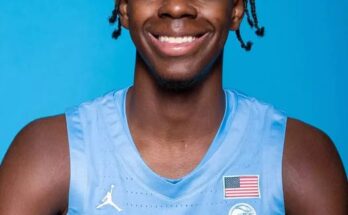Brandon Arvidson, the standout reliever from the University of Tennessee, has made a significant and somewhat surprising decision that will impact his baseball trajectory and the Volunteers’ bullpen in the upcoming seasons. Arvidson, who has drawn considerable attention from Major League Baseball scouts due to his dominant performances on the mound, has opted to punt on the upcoming MLB Draft and return to Tennessee for the 2026 season. This choice carries multiple layers of implications—not only for Arvidson himself but also for the Volunteers’ program, the draft class, and the broader baseball community watching his development. Understanding the full context behind Arvidson’s decision requires a deep dive into his background, the factors influencing his choice, and what this means moving forward.
Brandon Arvidson’s journey through college baseball has been marked by consistent improvement, resilience, and a growing reputation as one of the nation’s premier relief pitchers. Coming out of high school, he was a solid prospect but not overwhelmingly hyped as a top draft pick. Instead, Arvidson used his time at Tennessee to refine his pitching arsenal, improve his command, and develop the mental toughness required to thrive in high-pressure relief roles. Over the past couple of seasons, he has become a linchpin in Tennessee’s bullpen, often called upon in critical late-inning situations. His ability to induce ground balls, generate strikeouts, and maintain composure under pressure has earned him accolades and, naturally, the eyes of professional scouts looking for a potential draft pick.
The 2025 college baseball season showcased Arvidson’s growth in full force. His ERA dropped substantially compared to previous years, his strikeout-to-walk ratio improved, and his innings pitched remained steady despite the demanding nature of relief pitching. He demonstrated a well-rounded skill set, mixing a lively fastball with a sharp breaking ball and an effective changeup. Beyond raw talent, what impressed observers was his maturity—his pitch selection, situational awareness, and ability to navigate through lineups multiple times. For many draft analysts, Arvidson was emerging as a sleeper candidate who could be selected in the early rounds of the MLB Draft due to his proven track record and upside potential.
Yet, despite this promising outlook, Arvidson surprised many by announcing his intention to forego entering the 2025 MLB Draft and instead return to the University of Tennessee for the 2026 season. This decision immediately sparked discussion among fans, media, and scouts alike. The reasons behind his choice offer a compelling look into the complexities faced by college players at this crucial juncture of their careers. In an era where early entry into professional baseball is often seen as the fastest path to success and financial security, Arvidson’s decision underscores a strategic, long-term approach rather than a rush toward immediate professional gains.
One of the primary reasons for Arvidson’s return is his desire to further develop his skills in a competitive but familiar environment. College baseball offers a unique blend of high-level competition and coaching that allows players to hone their abilities while still having the safety net of an academic setting and team camaraderie. By returning for another season, Arvidson gains an additional year of refinement—whether it’s improving his velocity, command, pitch sequencing, or mental approach. This added development time is invaluable, especially for a relief pitcher who needs to master the art of consistency and adaptability against elite collegiate hitters.
Another consideration likely influencing Arvidson’s choice is the potential to enhance his draft stock. While he is already viewed as a strong candidate for the MLB Draft, the difference between being selected in the mid rounds versus the early rounds can be substantial in terms of signing bonuses, organizational investment, and initial opportunities. By staying at Tennessee and continuing to build on his impressive performances, Arvidson positions himself to possibly elevate his standing among scouts. A breakout or even a steady dominant season in 2026 could propel him into higher draft consideration, giving him greater leverage when negotiating a professional contract.
Additionally, the leadership role Arvidson will assume in his return season cannot be understated. As an experienced reliever and key contributor, he is poised to be a mentor and anchor for a Volunteers pitching staff that will likely see significant turnover with graduating players. His presence in the bullpen will provide stability and confidence to younger teammates, and the chance to serve as a team leader may help Arvidson mature even further. Leadership experience, both on and off the field, is a vital component of player development that sometimes goes overlooked in the draft evaluation process but can be invaluable in a professional setting.
Off the field, Arvidson’s decision reflects an appreciation for the collegiate experience beyond just baseball. Many student-athletes value the opportunity to complete their education, build lifelong friendships, and enjoy a sense of community that is often different from the professional sports world. The University of Tennessee offers a strong academic and social environment, and by returning, Arvidson can continue to pursue his degree and prepare for life after baseball. This well-rounded approach often benefits players in the long run, providing them with a broader foundation regardless of how their professional career unfolds.
From the perspective of the Tennessee baseball program, Arvidson’s return is a massive boost. The Volunteers have enjoyed competitive success in recent years, and having a reliable, experienced arm in the bullpen is crucial to sustaining that momentum. His presence not only helps Tennessee maintain a strong pitching staff but also sends a message to recruits and fans alike about the quality and commitment of the program. Retaining a player of Arvidson’s caliber can inspire confidence in the coaching staff’s ability to develop talent and prepare players for the next level.
For the MLB draft landscape, Arvidson’s decision introduces some shifts as well. Teams that had been eyeing him for the 2025 draft must now adjust their scouting reports and draft boards, potentially seeking alternatives to fill their bullpen needs. While some pitchers will emerge from the collegiate ranks or high school, losing a talent like Arvidson temporarily changes the draft dynamics. On the other hand, his anticipated entrance into the 2026 draft class will heighten the competition among prospects, possibly making that class even more intriguing for MLB organizations looking for polished relief pitching prospects.
It’s also important to consider the financial implications tied to Arvidson’s decision. Entering the draft early can bring immediate signing bonuses, but if a player believes they can improve their draft position and maximize earnings by returning to school, it can be a savvy business move. The uncertainty of draft outcomes and professional baseball careers means many athletes carefully weigh the risks and rewards of leaving college early. Arvidson’s choice reflects a thoughtful calculation that prioritizes long-term benefits over short-term gains, a mindset that could serve him well as he transitions to professional baseball in the future.
Looking ahead to the 2026 season, expectations will be high for Arvidson and Tennessee. Baseball fans and analysts will watch closely to see how he leverages his additional year of college ball to sharpen his craft. Will he become an even more dominant force in relief, or will opposing hitters begin to adjust? How will the leadership responsibilities shape his on-field performance and personal growth? These questions add an intriguing narrative to the upcoming season and further spotlight Arvidson’s unique position within college baseball.
In conclusion, Brandon Arvidson’s decision to punt on the MLB Draft and return to the University of Tennessee for the 2026 season is a multifaceted move rooted in personal development, strategic career planning, and a deep connection to his college team. His choice exemplifies the evolving landscape of amateur baseball, where players must balance immediate professional opportunities with the long-term pursuit of excellence and personal growth. Tennessee’s bullpen will benefit greatly from his return, and baseball fans everywhere will be eager to see how this talented reliever’s story unfolds in the coming year. As the 2026 season approaches, Brandon Arvidson remains a compelling figure in college baseball, poised to leave an even greater mark on the game before taking the next step toward a professional career.



